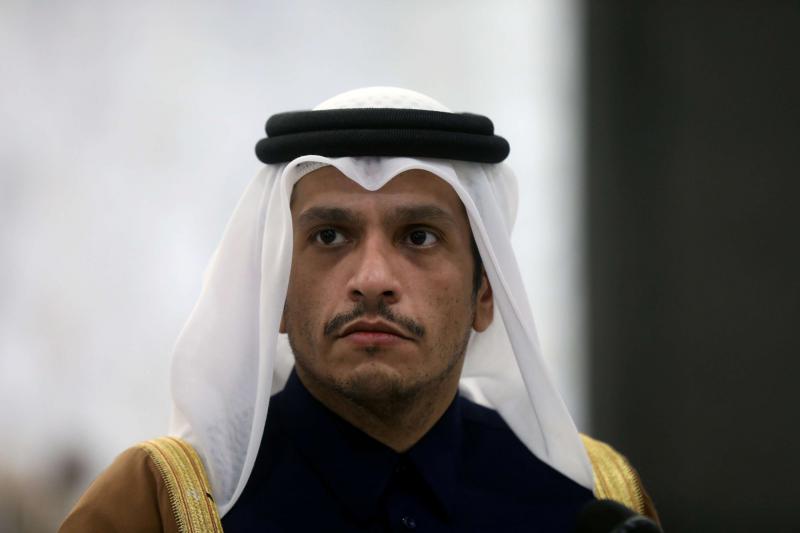Qatar’s foreign minister visited the United Arab Emirates (UAE), where he met Abu Dhabi’s Crown Prince Sheikh Mohamed bin Zayed al-Nahyan on Wednesday, state news agency WAM reported, as the two Gulf states work on improving bilateral ties after years of a bitter rivalry.
Sheikh Mohammed bin Abdulrahman al-Thani was received by the crown prince in Abu Dhabi and discussed “ways to enhance them (ties) to serve the interests of their nations,” WAM reported.
Wednesday’s meeting followed a similar visit in August by Sheikh Tahnoun bin Zayed al-Nayhan, UAE’s National Security Adviser and a brother of Sheikh Mohamed, to Doha where he met Qatar’s emir.
Saudi Arabia, the UAE, Bahrain and Egypt agreed in January to end the dispute that had led them to sever ties with Qatar in 2017 over accusations that Doha supported “terrorism”, a reference to Islamist groups. Doha denied the charges.
Riyadh and Cairo have led efforts to mend ties and appointed ambassadors to Qatar, while Abu Dhabi and Manama have yet to do so. All but Bahrain have restored travel and trade links.
The Gulf states have been pursuing a more moderate approach to defuse regional tensions, including with their rivals Iran and Turkey, as the United States reduced its military power in the Middle East.
Saudi Arabia and the UAE rely heavily on Washington for their security.
Earlier last week, Anwar Gargash, diplomatic adviser to the UAE president, told a conference in Abu Dhabi that there was uncertainty about the United States commitment to the region and concern over a “looming cold war” between Washington and Beijing.
He said the UAE is trying to manage long-running rivalries with Iran and Turkey through dialogue to avoid any new confrontations in the region as the Arab Gulf state homes in on its economy post COVID-19.
“We will see in the coming period really what is going on with regards to America’s footprint in the region. I don’t think we know yet, but Afghanistan is definitely a test and to be honest it is a very worrying test,” Gargash said.
“Part of what we need to do is manage our region better. There is a vacuum and whenever there is a vacuum, there is trouble,” he told the World Policy Conference.
The UAE has moved to reduce tensions by engaging with Qatar, Iran and Turkey, whose influence it had moved to counter in conflicts in Yemen, Libya and elsewhere in the region.
The UAE and Saudi Arabia believe the 2015 nuclear pact was flawed for not addressing Iran’s missiles programme and its network of regional proxies. The UAE has also moved to combat Islamist groups such as the Muslim Brotherhood which Gulf states see as a threat to their dynastic system of rule.
“Turkey’s recent re-examination of its policies towards Egypt, the Brotherhood and towards Saudi Arabia and others is very welcome. And I think for us to come mid-way and reach out is very important,” Gargash said.
“The Turks have been very positive about what we are saying to them,” he said. “Am I very positive about the reach out to Iran? Yes I am. Am I very positive that Iran will change its regional course? I have to say I am more realistic here, but I am betting Iran is also concerned about vacuum and escalation.”
Gargash said the pandemic placed non-political priorities at the forefront and that a main concern now was being caught in between the United States and China.
“We are all worried very much by a looming cold war. That is bad news for all of us, because the idea of choosing is problematic in the international system, and I think this is not going to be an easy ride,” he said.
Source: Arab Weekly
***Show us some LOVE by sharing it!***



